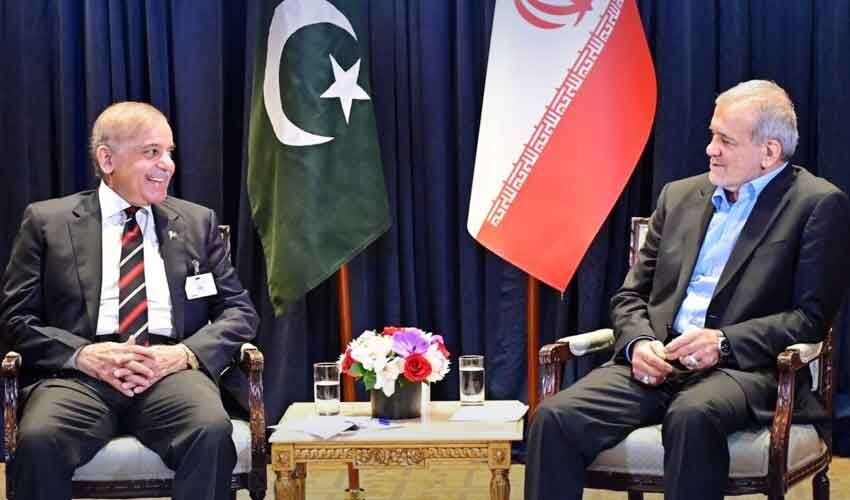Shehbaz Sharif’s upcoming visit to Tehran: A step toward regional stability
Islamabad and Tehran Strengthen ties amid regional diplomacy push

TEHRAN – Pakistan’s Prime Minister Shehbaz Sharif is set to visit Tehran in the coming days at the invitation of Iranian President Masoud Pezeshkian, marking another milestone in the two neighbors’ efforts to deepen bilateral relations and promote regional stability.
The trip underscores Iran’s “neighborhood diplomacy” strategy—a cornerstone of its foreign policy aimed at fostering cooperation with neighboring nations through dialogue and economic engagement.
A diplomatic continuity
The upcoming visit follows a recent phone conversation between Sharif and Pezeshkian, where both leaders emphasized the need to expand economic, trade, and security cooperation. Islamabad’s Prime Minister’s Office released a statement praising Iran’s “goodwill, brotherly efforts” in defusing tensions between Pakistan and India, particularly Tehran’s role in facilitating a path towards ceasefire. Sharif also expressed gratitude for Iran’s diplomatic initiatives, including Foreign Minister Abbas Araghchi’s recent visit to Islamabad, which he described as a constructive step toward regional peace.
The visit signals a shared commitment to reducing hostilities in South Asia, where Iran has positioned itself as a neutral actor. Following recent flare-ups between India and Pakistan, Araghchi engaged with both sides, and President Pezeshkian held separate calls with Indian Prime Minister Narendra Modi and Sharif—moves that were seen as testaments to Tehran’s growing influence as a regional peacemaker.
Beyond bilateralism: A regional vision
Iran and Pakistan share more than a border; their ties are rooted in historical, cultural, and linguistic affinities. Furthermore, mutual respect has always been a pillar of the two countries’ relations, which have maintained a cordial atmosphere over the years despite pressure from external forces.
It appears that the Pezeshkian administration seeks to leverage this relationship to not only strengthen bilateral cooperation but also to play a stabilizing role in South Asia. By facilitating dialogue between Islamabad and New Delhi, Iran aims to position itself as a credible mediator, a role both Pakistan and India seem to have increasingly acknowledged.
The visit is also expected to focus on cross-border trade and provincial-level collaboration, particularly between Iran’s western provinces and Pakistan’s bordering regions. During a recent meeting with governors from Iran’s Kurdistan, Kermanshah, and West Azerbaijan provinces—alongside officials from Iraq’s Kurdistan Region—Pezeshkian stressed the importance of transforming border areas into economic hubs. “When trade thrives, security concerns diminish,” he remarked, echoing a policy that prioritizes economic integration over militarization.
Security and counterterrorism: A shared challenge
Another critical agenda item will be security cooperation, specifically counterterrorism. Both nations have suffered from terrorist attacks and recognize the need for joint action. In their recent call, Pezeshkian and Sharif agreed on the urgency of dismantling terrorist networks and cutting off their financial and logistical support.
“Pakistan has been a victim of terrorism and fully understands the necessity of a firm response,” Sharif said, condemning recent attacks. The two leaders affirmed their commitment to a stable, secure region, free from external interference.
A new chapter in neighborhood diplomacy
Shehbaz Sharif’s visit highlights a key change in Iran’s foreign policy—one that juggles global relationships while focusing on stronger ties with its neighbors. By welcoming the Pakistani leader, Tehran is making its priorities clear: regional stability depends on open dialogue, economic cooperation, and mutual trust.
With South Asia facing growing geopolitical tensions, Iran’s potential as a facilitator of dialogue—and Pakistan’s long-lasting openness to it—could help shape a more united future. The question now is whether this meeting will lead to real progress—not just for these two countries, but for a region desperate for lasting peace.
Leave a Comment